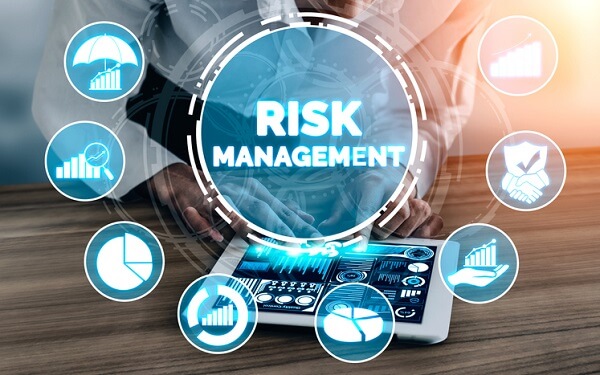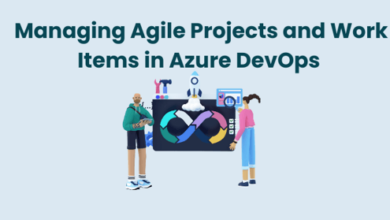Risk Assessment to Performance Evaluation: How to Effectively Manage Supplier Relationships

In today’s global marketplace, supplier risk relationship management is crucial for companies to maintain a successful supply chain. The increased complexity of supply chains and the emergence of new threats make it more difficult for organizations to manage supplier relationships effectively. This is where supplier relationship management (SRM) comes into play. SRM helps businesses maintain positive relationships with suppliers, mitigate risks and improve supplier performance.
In this blog post, we will delve into what supplier relationship management is, and how it can help mitigate supplier risk and evaluate supplier performance.
What is Supplier Relationship Management?
Supplier Relationship Management (SRM) is a strategic approach to managing supplier relationships to achieve better value for money, reduce costs, and increase efficiency. It involves identifying, analyzing, and managing relationships with suppliers to ensure that they deliver the goods and services required, on time and at the agreed-upon quality level.
Benefits of Supplier Relationship Management
SRM is a business strategy that enables companies to optimize their supplier relationships and achieve mutual benefits. The following are some of the benefits of effective supplier relationship management:
- Cost Savings – Effective SRM can help businesses to identify areas of cost savings and reduce overall procurement costs. By consolidating suppliers, negotiating better pricing, and improving supplier performance, they can achieve significant cost savings.
- Improved Quality – Strategies such as supplier evaluation and monitoring can help organizations to ensure that their suppliers are delivering high-quality products and services. This can lead to improved product quality, increased customer satisfaction, and reduced product defects.
- Increased Innovation – Collaboration between suppliers and businesses can lead to the development of innovative products and services. Sharing ideas, resources, and expertise allows them to leverage their suppliers’ knowledge and capabilities to drive innovation and gain a competitive advantage.
- Reduced Supply Chain Risk – Effective SRM strategies such as supplier diversification and risk assessment can help companies to mitigate supply chain risks. By diversifying their suppliers, businesses can reduce their reliance on a single supplier and reduce the impact of supplier disruptions.
- Improved Supplier Performance – Strategies that include performance monitoring, scorecards, and contract management can help businesses to improve supplier performance. Through setting clear expectations, providing feedback, and rewarding high performance, they can motivate their suppliers to improve their performance and achieve mutual benefits.
Mitigating Supplier Risk
Supply chain risk management is an essential part of supplier relationship management, as it helps businesses mitigate supplier risk. Supplier risk refers to the potential of a supplier failing to meet contractual obligations, disrupting supply chain operations, or causing reputational damage.
There are several factors that contribute to supplier risks, such as geopolitical risks, natural disasters, economic instability, and quality issues. To implement supplier risk management, organizations can adopt various strategies such as diversification of suppliers, risk assessment, and contract negotiations.
Diversification of Suppliers
This is a popular strategy that involves spreading the supply chain risk across multiple suppliers. By working with several suppliers, companies can reduce the potential impact of a supplier’s failure to meet contractual obligations. However, businesses must be careful when diversifying their suppliers as working with too many suppliers can lead to increased complexity and reduced efficiency.
Risk Assessment
Risk assessment includes identifying potential risks within the supply chain and developing strategies to mitigate them. They can conduct risk assessments by analyzing the supply chain, identifying potential risks, and developing plans to manage them. This helps them prepare for potential risks and develop effective contingency plans to mitigate the risks.
Contract Negotiations
Effective contract negotiations help businesses mitigate supplier risk by establishing clear expectations and obligations. Contracts should be drafted in a way that outlines the roles and responsibilities of each party, the delivery schedules, and the quality standards. Additionally, they should ensure that contracts are updated regularly to reflect any changes in the relationship.
Evaluating Supplier Performance
Evaluating supplier performance is crucial for maintaining positive supplier relationships and improving the efficiency of the supply chain. Businesses can use various criteria to evaluate supplier performance including quality, delivery time, price, communication, and innovation.
Methods for Evaluating Supplier Performance
Companies can use various methods to evaluate supplier performance such as scorecards, surveys, and site visits.
- Scorecards are a popular method for evaluating supplier performance as they provide a simple way to track performance against predefined metrics.
- Surveys are another effective way to evaluate supplier performance as they provide organizations with feedback from the supplier’s perspective.
- Finally, site visits can be used to evaluate supplier performance by providing businesses with a first-hand look at supplier operations.
Supplier Relationship Management Best Practices
To implement an effective supplier relationship management strategy, businesses should follow best practices such as alignment with business strategy, collaboration, communication, and continuous improvement.
Alignment with Business Strategy
Businesses should ensure that their SRM strategy is aligned with their overall business strategy. This means that SRM should support the business’s goals and objectives. By aligning SRM with the business’s strategy, they can ensure that they are investing in the right suppliers and that the SRM program is delivering the expected benefits.
Collaboration
Efficient collaboration between suppliers and businesses is essential for successful SRM. They must work with suppliers to identify areas of improvement, optimize processes, and reduce costs. Collaboration can also lead to the development of new products and services, which can drive innovation and increase revenue.
Communication
To ensure effective communication, businesses need to establish clear lines of communication with their suppliers, clarify roles and responsibilities, and maintain open and honest communication channels. This can help to build trust, identify potential issues early on, and improve collaboration.
Continuous Improvement
Regular reviews are needed for their SRM program to identify areas for improvement and implement changes to optimize program performance. This includes updating contracts, diversifying suppliers, and improving collaboration and communication channels. By continuously seeking improvement, businesses can enhance their supplier relationships, reduce costs, and improve overall performance.
Successful SRM programs can help businesses to achieve significant benefits such as cost savings, improved quality, increased innovation, reduced supply chain risk, enhanced collaboration, and increased efficiency. With this, businesses can build strong, lasting relationships with their suppliers and create a competitive advantage. With the right strategies in place, businesses can ensure that their supplier relationship management program is effective and efficient, enabling them to stay ahead of the curve.














